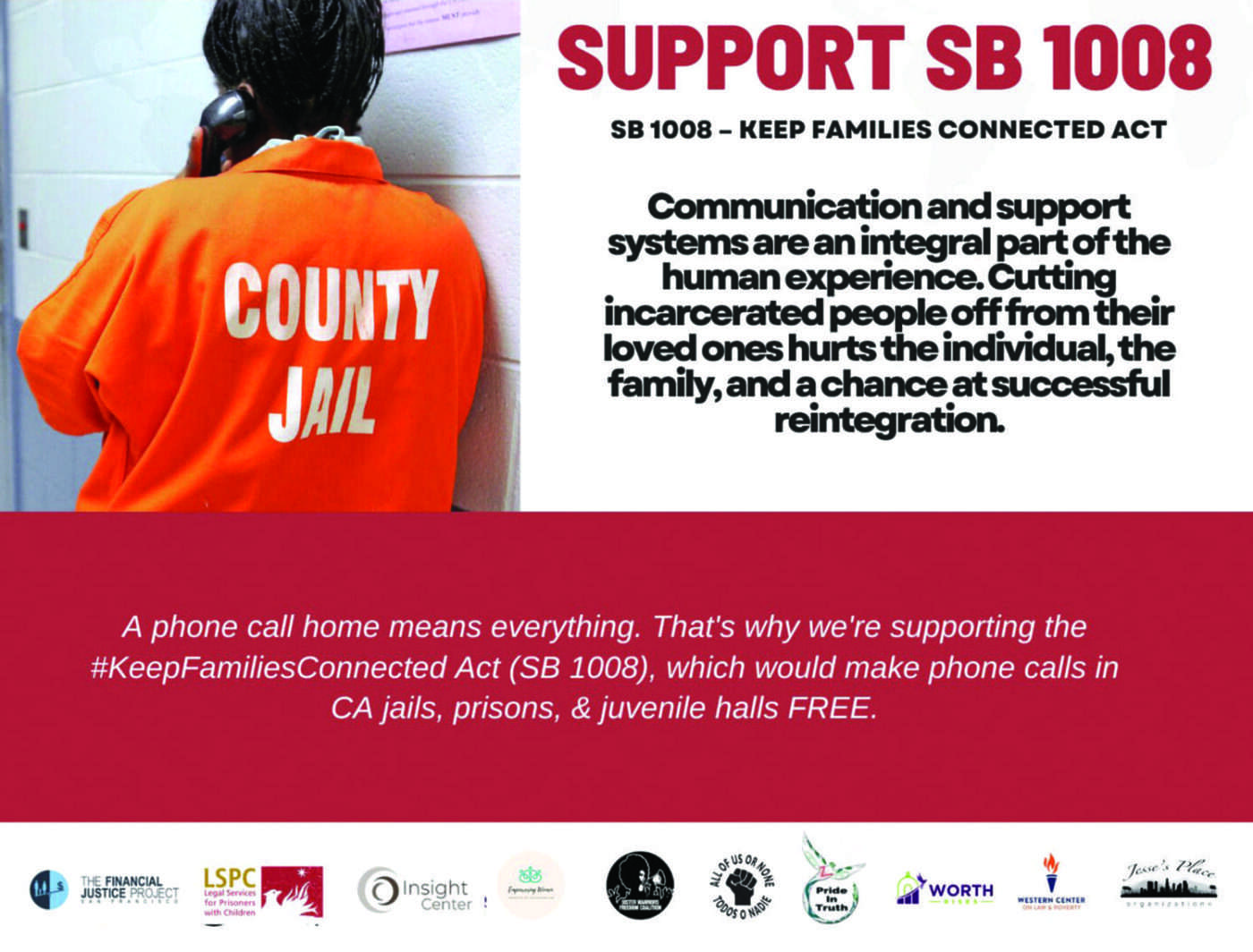
Policing
AB 26 (Holden) Excessive force policies for law enforcement (Gov. 7286).
- Requires officers to immediately report excessive force.
- Prohibits retaliation against officers that report violations by other officers.
- Requires similar discipline for officers who use excessive force and officers who fail to intercede to stop the use of excessive force.
AB 48 (Lorena Gonzalez) Limiting use of rubber bullets and tear gas against protesters. (Pen. 13652 and 13652.1).
- Prohibits law enforcement from using kinetic energy projectiles and chemical agents to disperse any gathering solely due to violation of a curfew, a verbal threat or noncompliance of a law enforcement directive. May be used only by trained officers and according to specific protocols to defend against threat to life or serious bodily injury, or control an objectively dangerous and unlawful situation. This law does not apply to jails or prisons.
- Requires public reporting on any incident where tear gas or rubber bullets were used for crowd control.
AB 57 (Gabriel) Training police on hate crimes (Pen. 422.87, 13519.6).
- Requires the Commission on Peace Officer Standards and Training (POST) to develop a course on hate crimes that among other things will explain that discriminatory selection of victims is a form of bias motivation and targeting religious symbols is evidence of religious discrimination.
- Requires police to take the course within a year after its development and every six years thereafter.
AB 89 (Jones-Sawyer) PEACE (Peace Officers Education and Age Conditions for Employment) Act (Gov. 1031.4, Pen. 13511.1).
- Raises minimum age for police officers from 18 to 21 (for officers hired or enrolled in police academy on or after Jan. 1, 2022, not including correctional officers in CDCR and most counties’ jails)
- Requires Community College system to recommend a modern policing degree program, with financial assistance for underrepresented groups, by June 1, 2023, and implement the program within two years
AB 118 (Kamlager) CRISES [Community Response Initiative to Strengthen Emergency Services] Grant Pilot Program (Welf & Inst. 18999.90 et seq.). Authorizes funding of pilot programs across state to strengthen community-based alternatives to law enforcement as first responders to crisis situations not related to fires or emergency medical needs. Funding to be distributed by Jan. 1, 2023.
AB 127 (Kamlager) Allow DA to provide affidavit for arrest warrants for police (Pen. 817)
Allows the district attorney’s office, rather than the police department, to provide a probable cause affidavit (evidentiary showing) to obtain a warrant to arrest a police officer.
AB 229 (Holden) Private security guards, alarm companies (Bus. & Prof. 7542, 7574.18, 7583.2-7583.10, 7585, 7585.6, 7587.1-7587.9, 7596, 7596.3, 7598.1-7598.3, 7599.37-7599.38). Prohibits private security guards from carrying guns or batons unless employed by the government or a private patrol operator. Requires reports of any use of physical force or violence (previously, only discharge of firearm). Requires training designed in consultation with CPOST within 6 months of employment, including appropriate use of force. Allows denial, suspension or revocation of license or firearm/baton permit for use of force in violation of regulations. Requires alarm company employees to complete training in arrest and use of force.
AB 481 (Chiu) Military equipment use. (Gov. 7070 et seq.).
- Requires police, sheriffs, DAs, and probation departments to get approval from an elected governing body to use military equipment and to adopt a military use policy.
- The governing body may approve military equipment use only if (1) necessary with there is no reasonable alternative; (2) will safeguard the public welfare, safety, civil rights and civil liberties; (3) reasonably cost effective; (4) the agency complied with prior military equipment use policies or corrective action was taken.
- Requires state agencies to publish military equipment use policy before use.
AB 490 (Gipson) Positional asphyxia (Gov. 7286.5). Prohibits law enforcement agencies from authorizing techniques that involve a substantial risk of positional asphyxia (situating a person in a manner that compresses their airway and reduces the ability to sustain adequate breathing).
AB 750 (Jones-Sawyer) Expands police liability for perjury (Pen. 118.1)
Expands the crime of perjury to include not only false statements in a police report but also
- False statements to a fellow officer that are added to a police report; and
- Including a third party’s statement in a police report as if true, knowing it was false.
AB 958 (Gipson) Law Enforcement Gangs (Pen. 13670). Requires law enforcement agencies to:
- Prohibit law enforcement gangs (defined as a group of officers in an agency “who engage in a pattern of on-duty behavior that intentionally violates the law or fundamental principles of professional policing.”)
- Make participation in such a gang grounds for termination.
- Disclose such a termination to any agency that is considering hiring an officer.
AB 1455 (Wicks) Deadline to sue for sexual assault by law enforcement officer (Gov. 945.9)
If assault against an adult occurs while officer is employed by a law enforcement agency, a government claim may be filed within the later of: 10 years after criminal judgment against the officer or 10 years after the officer is no longer employed. Such a claim may be revived if it (a) has not been litigated to finality or settled by written agreement, (b) would otherwise be barred by time limits, and (c) is revived either (i) within 10 years from last act/attempt of sexual assault or assault with intent to commit sexual assault, or (ii) within three years of discovery that an injury or illness resulted form such an act/attempt.
AB 1475 (Low) Limits posting of booking photos on social media (Pen. 13665)
- Prohibits police or sheriff’s department from sharing on social media (and requires removal on request) booking photos of an individual arrested for a nonviolent crime unless arrestee is fugitive or imminent threat, court orders release for legitimate law enforcement reason, other exigent circumstance in furtherance of urgent and legitimate law enforcement reason.
- Requires removal of any booking photo in the following circumstances: record has been sealed; conviction dismissed, expunged, pardoned, or eradicated pursuant to law; certificate of rehabilitation issued; found not guilty; not charged; or charges dismissed. This provision applies retroactively.

SB 2, SB 586 (Bradford) Kenneth Ross Jr. Police Decertification Act (Civ. 52.1, Gov. 1029, Pen. 832.7, 13503-13510.9) .
- Requires peace officers in California to be certified by a statewide commission in order to be employed by any law enforcement agency.
- Disqualifies officers: (1) who have committed falsification of records, perjury, bribery, and other offenses against public justice; (2) whose certification has been surrendered, denied, or revoked; (3) who is listed in a national decertification index; (4) who has committed serious misconduct anywhere that would have resulted in revocation of certification in California.
- Requires suspension or revocation of certification for “serious misconduct,” which includes false reporting, tampering with evidence, intimidating witnesses, knowingly obtaining a false confession, knowing false arrest, excessive force, sexual assault, racial or other bias, law enforcement gang participation (including incidents before Jan. 1, 2022, involving false reporting, tampering with evidence, sexual assault or a use of deadly force that resulted in death or serious bodily injury or where an agency concludes its investigation after Jan. 1, 2022).
- Requires agencies to report complaints, investigations, charges and reasons for separation to the state commission.
- Authorizes the commission to investigate incidents in addition to the local agency, and makes those records public.
- Strips police of immunity for civil rights violations that involve instituting or prosecuting a judicial proceeding, injury to an incarcerated person or failure to obtain medical care for someone in custody.
- Disqualifies anyone convicted of a felony, even if expunged, unless a court makes a finding of factual innocence.
SB 2 (Bradford) Agency/Officer Liability for Civil Rights Violations (Civil 52.1(n)). Under the Tom Bane Civil Rights Act, if a peace officer interferes with someone’s federal or state rights by threat, intimidation or coercion (or attempts to do so), the officer and the employing agency are no longer immune from monetary liability under state law for:
- Malicious prosecution (instituting or prosecuting a judicial or administrative proceeding maliciously and without probable cause). This change also potentially increases officers’ liability for false arrest and false imprisonment under Asgari v. City of LA (1997) 15 Cal.4th 744, 753.
- Failing to obtain or furnish medical care. (Formerly, under Gov. 845.6, liability was limited to cases where the officer knew or had reason to know an incarcerated person was in need of immediate care but failed to take reasonable action to summon such care; see 855.8, 855 for immunity for failure to diagnose/treat/confine/release for mental illness, addiction).
- Causing an injury to a prisoner or an injury by a prisoner (Law enforcement agencies newly liable; formerly immune under Gov. 844.6).
See also Prison and Jail Conditions (SB2 strips CDCR/jails/COs of same immunities.)
SB 16 (Skinner) Disclosure of officer misconduct (Evid. 1045, Pen. 832.5, 832.7, 832.12-.13)
- As of July 1, 2022, requires disclosure of the following records of peace officer misconduct:
- Sustained finding of unreasonable or excessive use of force or failure to intervene to stop another officers’ unreasonable or excessive use of force
- Sustained finding of unlawful arrest or unlawful search
- Sustained finding of conduct involving prejudice or discrimination
- Investigations where officer resigned before the investigation was complete
- Requires disclosure at earliest possible time but no later than 45 days after request, except for incidents that occurred before Jan. 1, 2022 which must be disclosed after Jan. 1, 2023.
- Deletes provision that required courts to exclude records from evidence if the misconduct occurred more than five years before the subject of the litigation.
- Requires law enforcement agencies to review records of misconduct investigations before hiring officers.
- Requires officers to immediately report all uses of force to the officer’s agency.
See also Prison and Jail Conditions: some provisions apply to custodial officers.
SB 715 (Portantino) Authorizes AG Investigation of Peace Officer Killing of Possibly Unarmed Civilian (Gov. 12525.3). Authorizes Attorney General to investigate a police killing of a civilian if the civilian was unarmed or there is a reasonable dispute about whether the civilian was armed.





